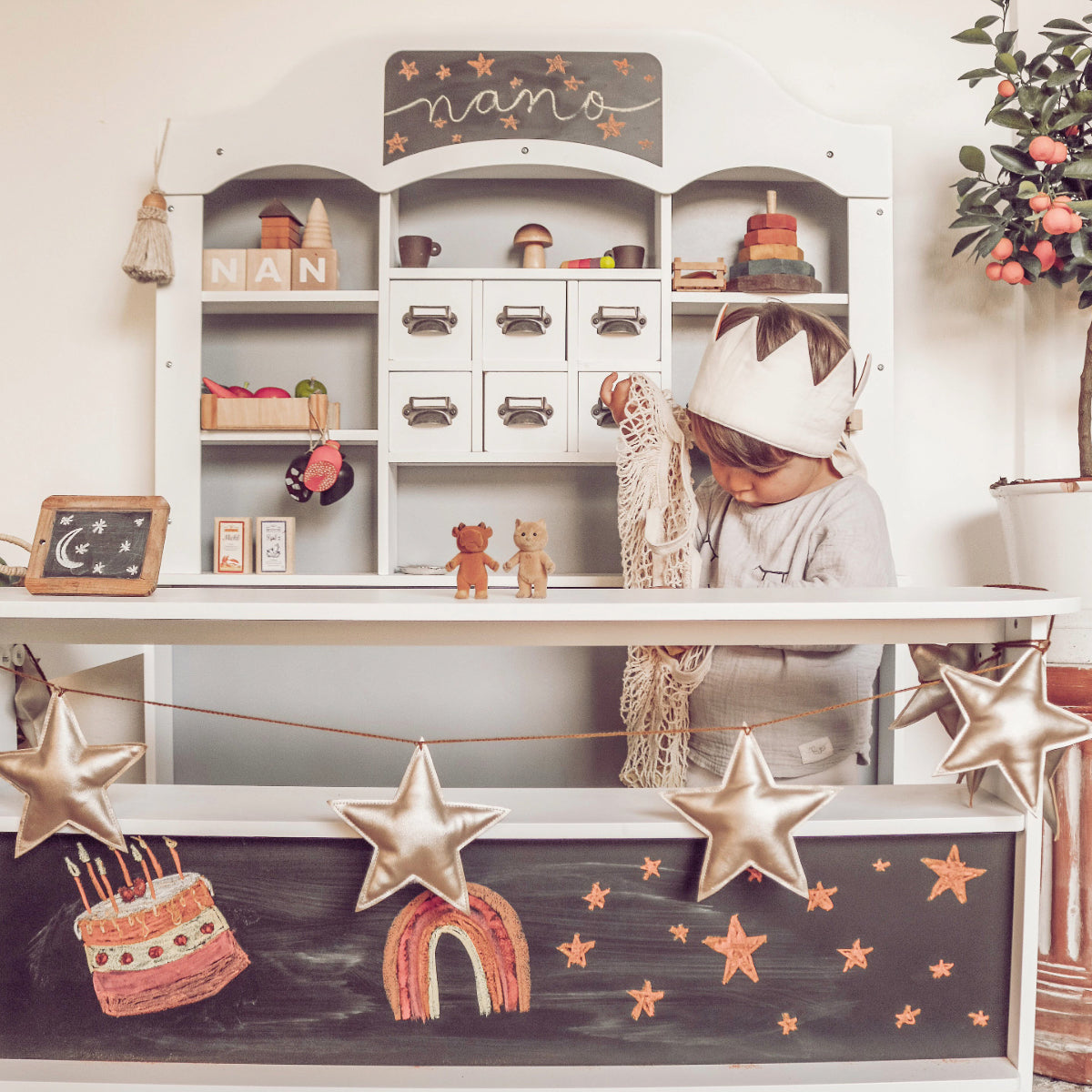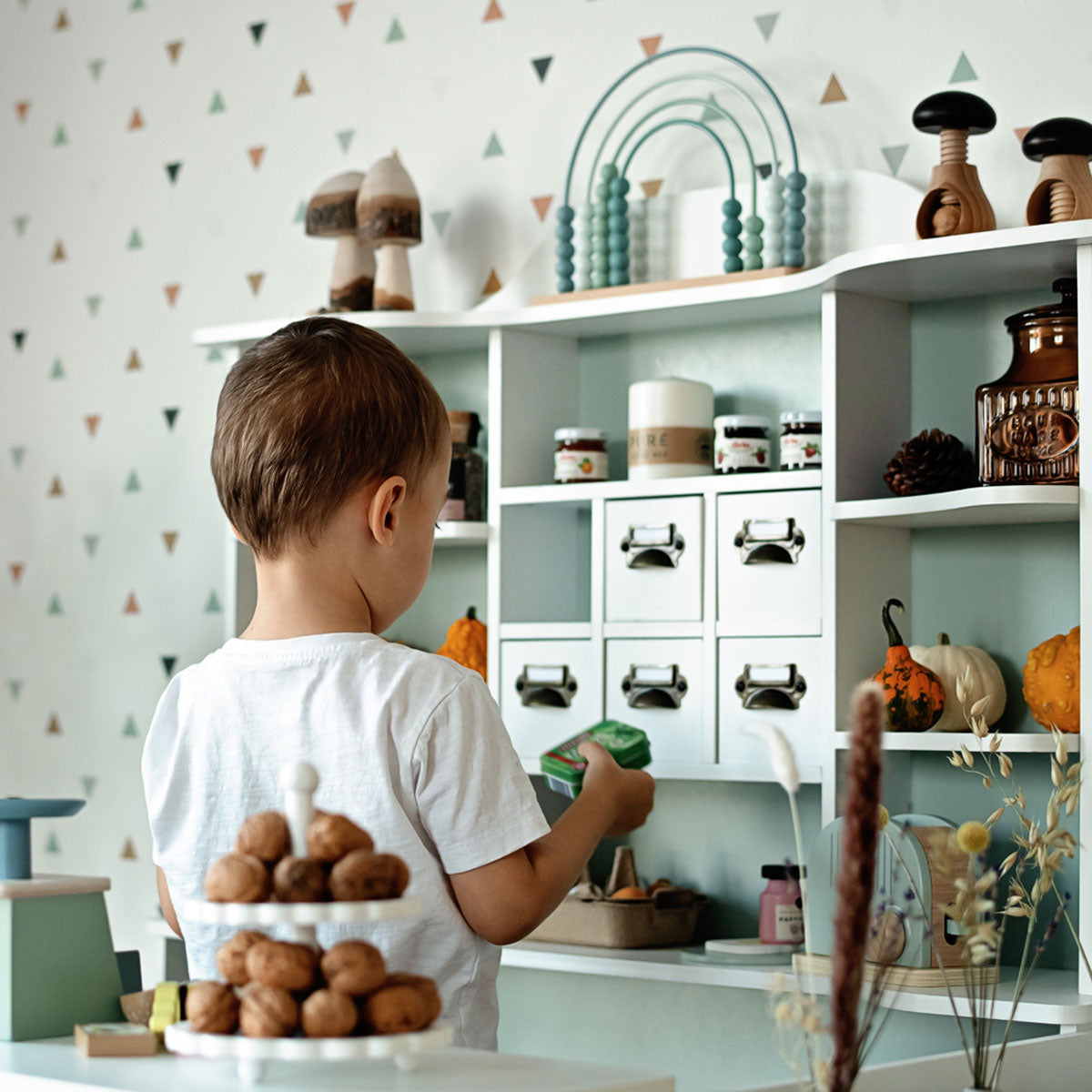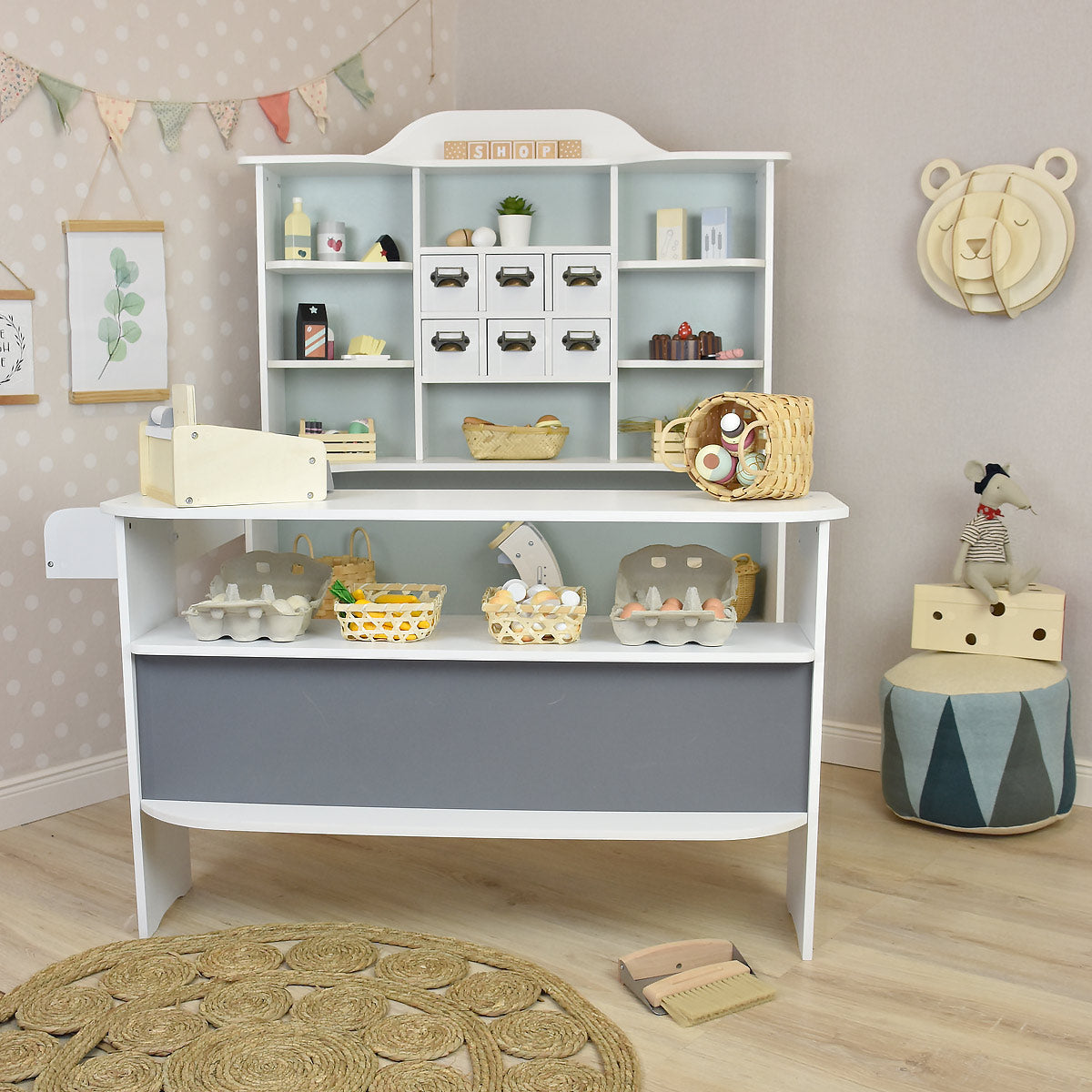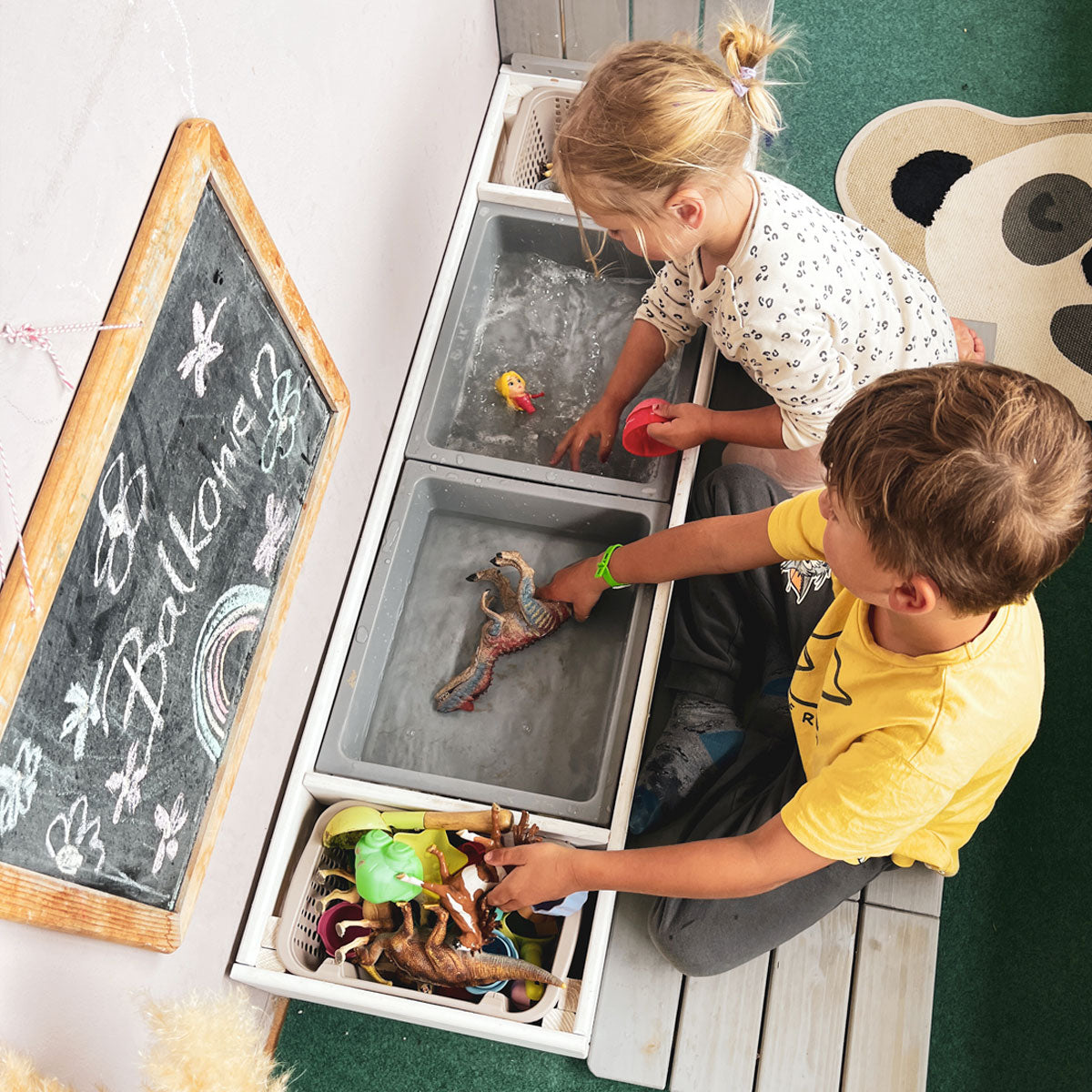
Pirum & Pedagogy – How Free Play Supports Child Development
Children don’t play just to pass the time—they explore, create, and learn in the process. Especially free play is considered a powerful driver of development. It fosters creativity, independence, and social skills—and that’s exactly where Pirum Holzspielzeuge’s play furniture comes in: it creates space for imagination without dictating how play should happen.
What Does “Free Play” Actually Mean?
Free play is the opposite of guided play. It arises spontaneously, without fixed rules or predetermined steps. Children decide for themselves what to play, how long, and with which materials. They use their surroundings creatively—whether it’s a sandbank, mud kitchen, or toy shop.
Free play is:
-
Self-directed: Children choose the content, pace, and roles
-
Open-ended: There’s no “right” or “wrong” way to play
-
Flexible: It adapts to age, mood, and interests
-
Developmentally supportive: It strengthens motor, social, and cognitive skills
Why Is Free Play So Valuable?
Through free play, children learn naturally—without pressure, but with plenty of curiosity. Educational concepts and observations show that free play:
-
Encourages creativity: Children invent their own scenarios, solutions, and stories
-
Builds confidence: They make decisions and experience success
-
Develops social skills: Roleplay helps practice communication, empathy, and conflict resolution
-
Improves movement and coordination: Through splashing, sorting, and building
-
Expands language and expression: By narrating, negotiating, and imitating
How Pirum Play Furniture Supports Free Play
Pirum Holzspielzeuge’s play furniture is intentionally open-ended—it invites play without prescribing it. That makes it especially versatile:
-
The mud kitchen becomes a garden center, potion lab, or workbench
-
The toy shop transforms into a café, pharmacy, or farmers’ market
-
The sandbank serves as a baking station, display area, or crafting table
Thanks to sturdy construction and natural materials, these pieces create a play environment that respects children—and gives them space to explore.
What Can Parents Do?
Free play doesn’t need instructions—but it does benefit from a supportive setting. Parents can help by:
-
Providing time and space: Even boredom can spark creativity
-
Offering materials: Natural items, everyday objects, and simple props
-
Avoiding judgment: Play doesn’t need to be “productive” or “meaningful”
-
Showing interest: Listening, joining in (if invited), and offering gentle prompts
The key is: children decide what and how they play.
Conclusion
Free play is more than entertainment—it’s a gateway to growth. With Pirum Holzspielzeuge’s open-ended, lovingly designed play furniture, you create an environment that inspires, empowers, and supports children. Whether in the garden, on the balcony, or in the playroom: giving space for imagination is one of the most meaningful ways to encourage learning.





Leave a comment
This site is protected by hCaptcha and the hCaptcha Privacy Policy and Terms of Service apply.